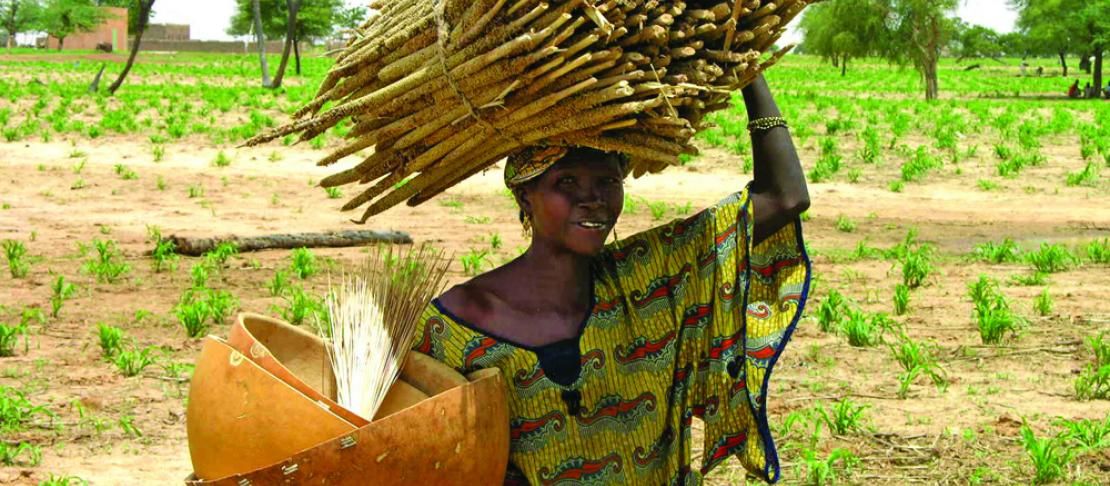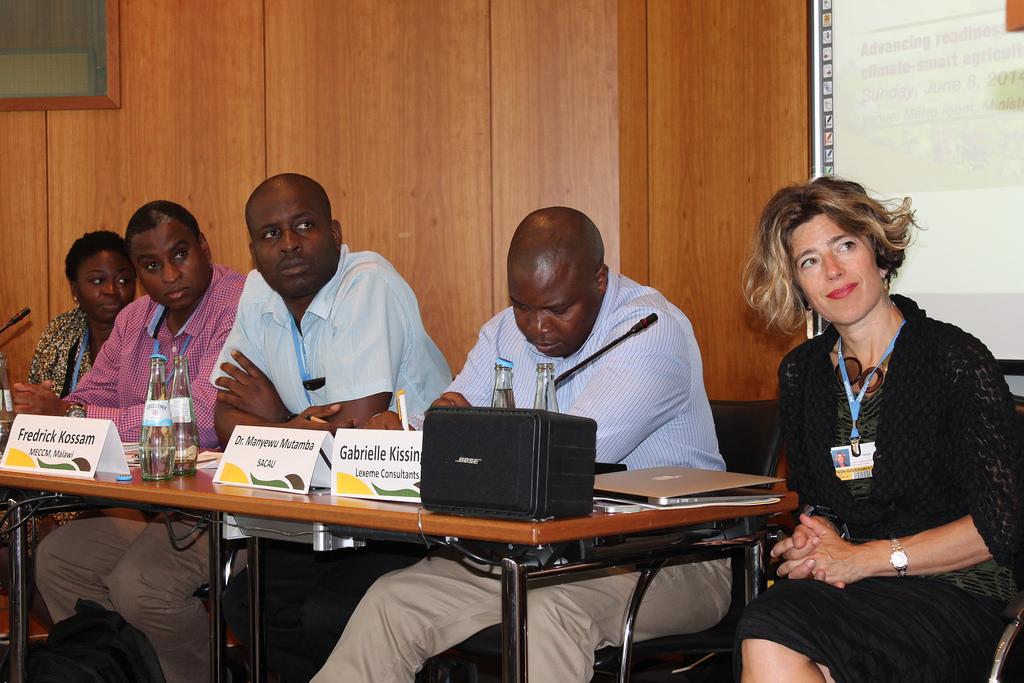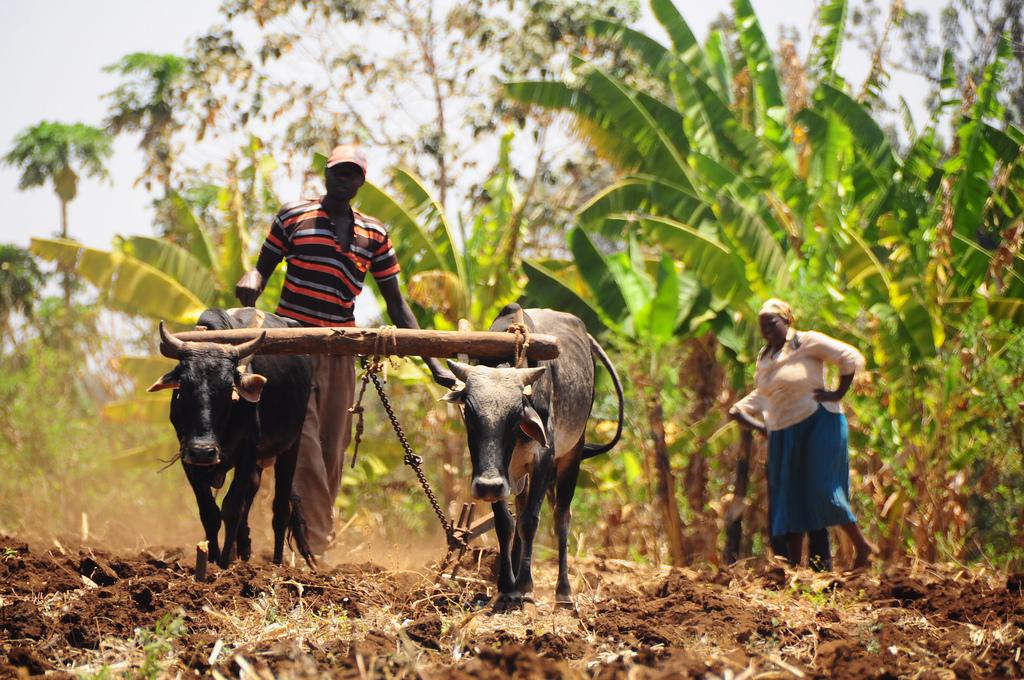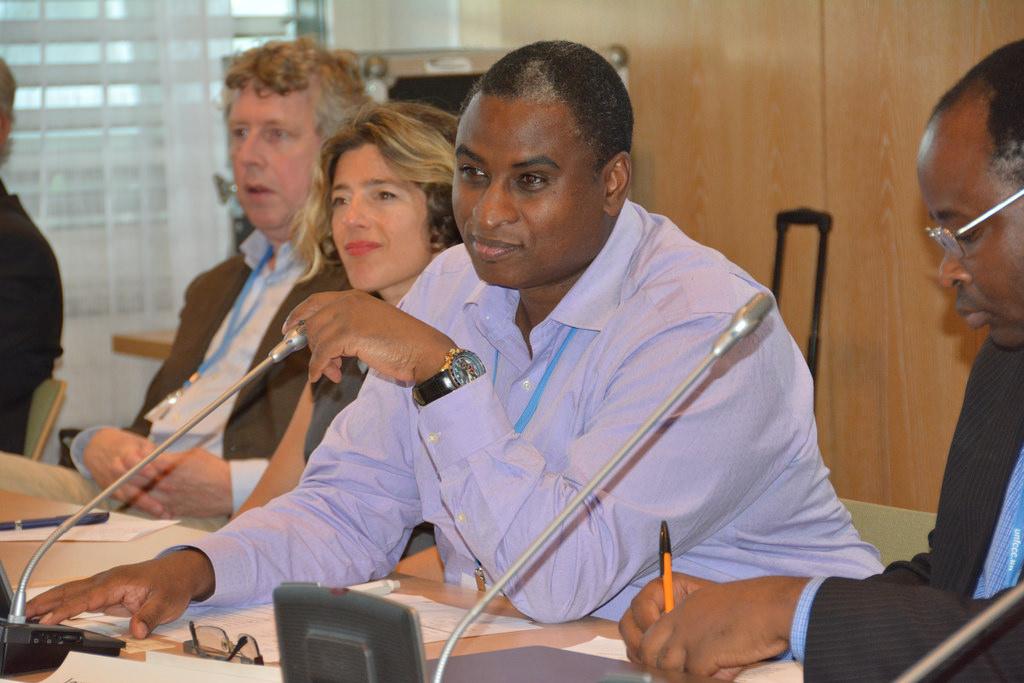Latest UN climate talks bring forward significant results on agriculture and food security

At the eleventh hour, the UN Climate Change Conference in Bonn finally made progress on issues related to agriculture. Here are some of the key results from the negotiations from SBSTA 40.
For quite some time, the 40th Session of the UNFCCC Subsidiary Body for Scientific and Technological Advice (SBSTA) looked bleak in terms of progress on addressing issues relating to agriculture. Despite a wide range of actors, from parties to observer and non-governmental organisations, raising issues such as food security and adaptation to climate change, Climate-smart Agriculture, sustainable landscapes and links to mitigation through official side events, sessions and meetings, the results of the negotiations were coming up short.

CCAFS Side event: Advancing readiness to fast-track climate-smart agriculture in Africa Photo: Pernille Høj (CCAFS)
But late into the second week of the sessions, negotiations on agriculture took a leap forward as the agriculture contact group agreed on constructive steps forward in a two year plan to address issues of adaptation of agriculture to climate change impacts, promoting sustainable rural development and productivity of agricultural systems and food security.
The role of agriculture
During the talks in Bonn, many actors pressed hard for a substantial plan for agriculture under the UNFCCC processes. During the Technical Expert Meeting on Land Use on 11 June, the Farmers Constituency presented their views on the role and status of agriculture in the face of climate change:
“It is clear that the risks posed by climate change have a direct bearing on food security and the development of the economies of our rural areas. Farmers face the twin challenge of producing enough food for the world’s growing population while ensuring the livelihoods of those whose subsistence depends on agricultural production,” reads the intervention made by the Farmers Constituency (FC) at the meeting.
The expert meeting touched upon an integrated approach to land use and adaption and mitigation. The issue was raised in a number of interventions, and thus agricultural actors attending SBSTA 40 took forward the discussion of how to integrate adaptation to climate change and mitigation practices and mechanisms

Farmer from Kenya working in the field with his cattle. Adapting to the changing climate in Kenya is crucial in order to sustain farming and the livelihoods that come with it.
Photo: P. Casier (CGIAR)
The technical expert meetings ultimately served more as a brainstorming session than as a negotiation, though sharp views still came forward at the meeting:
“The farmers’ constituency encourages you to take the necessary steps here in Bonn to put us safely on track towards a SBSTA work program on agriculture and thereby ensure that an inclusion of agriculture and the land sectors in a 2015 agreement is on a strong scientific footing,” as it further says in the FC intervention.
Key results
On 13 June, progress was finally made at the negotiations. A substantive SBSTA work program on agriculture, despite the call from the FC, was not realized in the conclusions on agriculture, but many of the issues put forward by actors related to agriculture were noted. The conclusions set forward activities reaching more than two years into the future, which is groundbreaking, as the past five years, results on agriculture has been rather procedural.
Many delegations mentioned the importance of adaptation activities that ensure food security as the entry point for climate activities in countries facing food insecurity and development challenges.
G-77/China was unified in supporting the conclusions on agriculture. The African Group and the Independent Alliance of Latin America and the Caribbean (AILAC) Group played particularly important roles in advocating for the conclusions on agriculture.
In the centre of the conclusion is adaptation at national and local level. The SBSTA agreed to undertake scientific and technical work within the following four areas, the:
Development of early warning systems and contingency plans in relation to extreme weather events and its effects.
Assessment of risk and vulnerability of agricultural systems to different climate change scenarios at regional, national and local levels.
Identification of adaptation measures, taking into account the diversity of the agricultural systems, indigenous knowledge systems and the differences in scale.
Identification and assessment of agricultural practices and technologies to enhance productivity in a sustainable manner, food security and resilience.
The SBSTA also requested the UNFCCC secretariat to organize in-session workshops on these four elements, the two first to be held at SBSTA 42 (in June 2015) and the two next to be held at SBSTA 44 (in June 2016).

CCAFS SIDE EVENT: PLANNING CLIMATE ADAPTATION IN AGRICULTURE: ADVANCES IN RESEARCH, POLICY AND FINANCE
Photo: V. Atakos (CCAFS)
The parties of SBSTA will submit their views on the four elements from the final conclusions on agriculture by February 2015. Reports from the first two workshops will be considered at SBSTA 43, held during COP 21 in Paris. Reports from the next to workshops will be considered one year after at SBSTA 45.
Read the full text of the draft conclusions here.
What now?
The results mark the start of, if not a program, then a much clearer course on agriculture – decisions in Paris can be taken regardless of the results, but nevertheless the SBSTA can inform parts of this process. The more direct links between mitigation and adaptation was also left out, but adaption co-benefits were included, which gives space for mitigation activities that occur through actions for adaptation. This is complementary to climate-smart agriculture practices.
Another important upcoming event will be the UN Secretary-General Ban Ki Moon’s Climate Summit in New York in September 2014 – here the Global Alliance for Climate-Smart Agriculture will be launched to further the agenda for agriculture and climate-smart production practices.
In the meantime, work in the field continues in order to fast-track mitigation of emissions from agricultural production and enhance adaptation to climate change for smallholder farmers.
Click to read full coverage of CCAFS activities at SBSTA.
Pernille Hoej is a communications assistant with the CCAFS coordinating Unit. This story was developed with important inputs from Anette Engelund Friis (Danish Agriculture and Food Council) and Wendy Mann (Food and Agriculture Organization of the UN - FAO).
